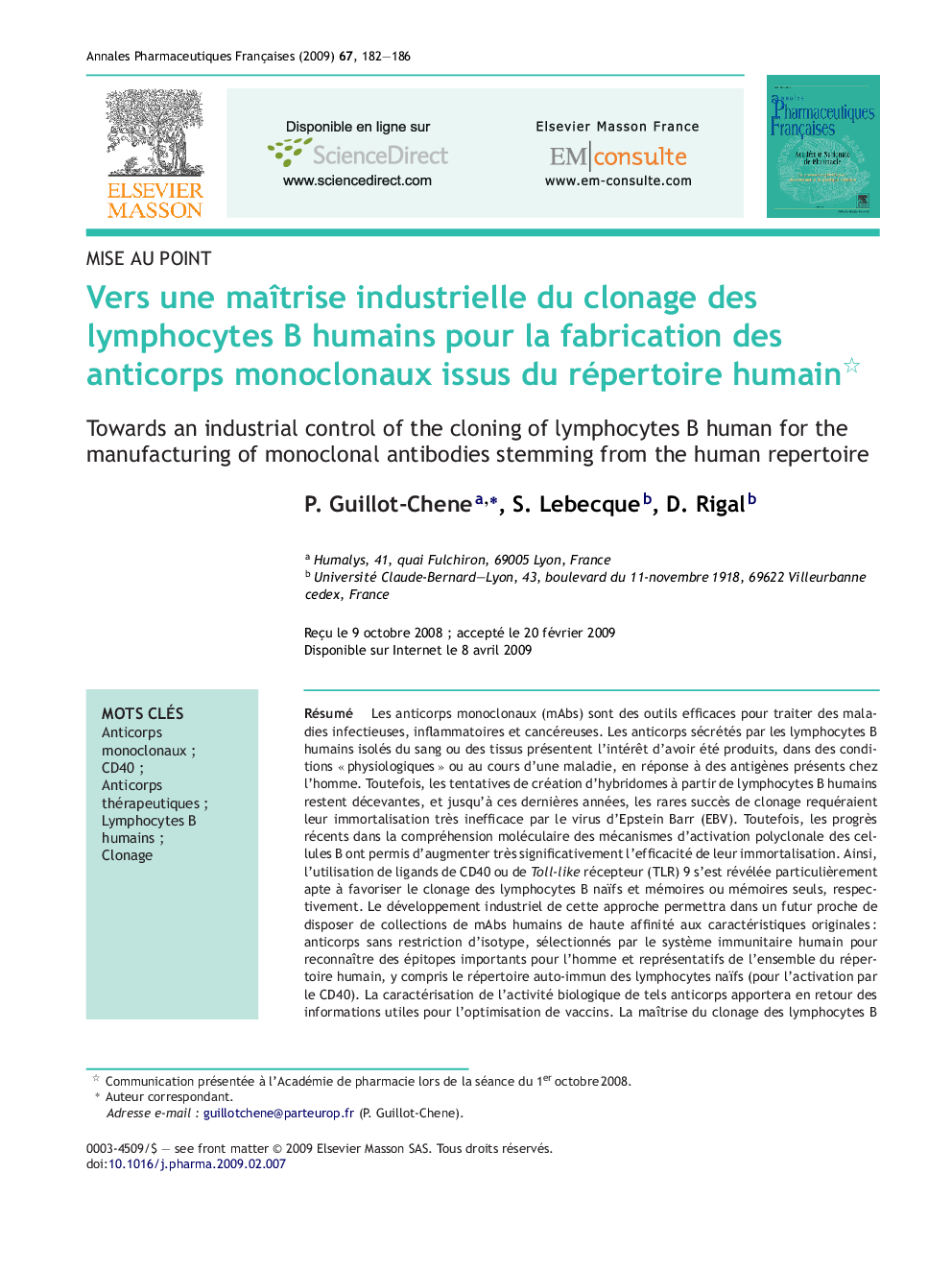| Article ID | Journal | Published Year | Pages | File Type |
|---|---|---|---|---|
| 2478459 | Annales Pharmaceutiques Françaises | 2009 | 5 Pages |
Abstract
Monoclonal antibodies (mAbs) are efficient drugs for treating infectious, inflammatory and cancer diseases. Antibodies secreted by human lymphocytes that have been isolated from either peripheral blood or tissues present the definite interest of being part of the physiological or disease-related response to antigens present in the human body. However, attempts to generate hybridomas with human B cells have been largely unsuccessful, and cloning of human B cells has been achieved only via their inefficient immortalization with Epstein Barr Virus (EBV). However, recent progress in our understanding of the molecular mechanisms of polyclonal B cell activation has dramatically increased the capacity to clone human B cells. In particular, activation of human naïve and memory B cells through CD40 or memory B cells only through TLR9 was shown to greatly facilitate their immortalization by EBV. Industrial development based on these observations will soon provide large collections of high affinity human mAbs of every isotype directly selected by the human immune system directed to recognize epitopes relevant for individual patients. Moreover, after CD40 activation, these mAbs will cover the full human repertoire, including the natural auto-immune repertoire. Full characterization of the biological activity of these mAbs will in turn bring useful information for selecting vaccine epitopes. This breakthrough in human B cell cloning opens the way into new areas for therapeutic use of mAbs.
Keywords
Related Topics
Health Sciences
Pharmacology, Toxicology and Pharmaceutical Science
Drug Discovery
Authors
P. Guillot-Chene, S. Lebecque, D. Rigal,
